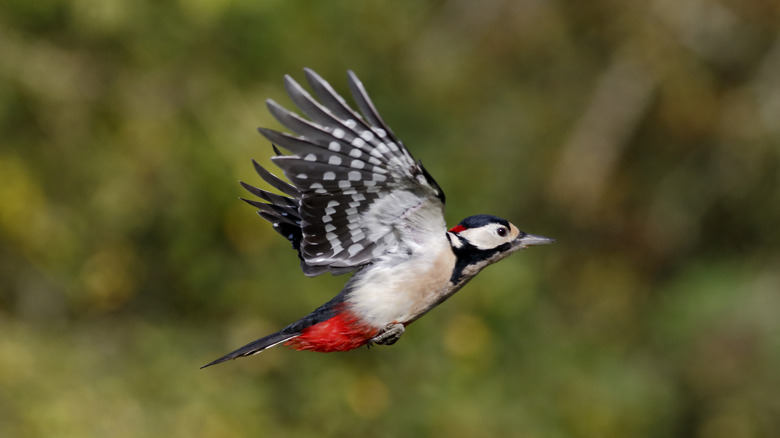As the weather warms and the days lengthen, garden enthusiasts eagerly anticipate the opportunity to fill their outdoor spaces with new decorations and features. While there are countless trends and ideas to explore, it’s essential to consider the potential impact on the wildlife that calls your garden home. One trend gaining popularity in recent years is hanging mirrors to add visual interest and depth to outdoor settings. However, before you rush to incorporate mirrors into your garden design, it’s crucial to understand the potential consequences for the avian visitors of your yard.
Many people are drawn to the idea of hanging mirrors in their gardens to create the illusion of space and light, especially in smaller or shaded areas. Mirrors can reflect sunlight and greenery, adding a sense of vibrancy and openness to the outdoor environment. However, while humans may appreciate the aesthetic appeal of mirrors, birds perceive them differently. For birds, mirrors can be confusing and disorienting, leading to a range of negative consequences. Luckily, you can effectively avoid these bad outcomes and use alternatives to spruce up your outdoor space this summer.
How mirrors can harm avian wildlife

The presence of mirrors in outdoor spaces can pose significant risks to bird populations, particularly during the breeding season when birds are more active and territorial. When birds encounter their reflections in mirrors, they may perceive them as intruders or rivals encroaching on their territory. This can trigger territorial behaviors, such as aggressive displays or vocalizations, as birds attempt to defend their space from what they perceive as a threat. Unfortunately, these interactions with mirrors can lead to stress and anxiety for birds, disrupting their normal behaviors and potentially impacting their overall well-being.
Birds have a tendency to fly into windows and mirrors at high speeds, believing that they are flying towards open space or another bird. The reflective surface of the mirror can be deceptive, causing birds to misjudge distances and angles, resulting in collisions with the mirror or nearby structures. These collisions can cause injury or death to the birds involved, making mirrors a significant hazard in outdoor environments where birds are present. Moreover, birds rely on visual cues, such as sun position and natural features, to navigate their surroundings and find food, water, and shelter. Mirrors could potentially disrupt these visual cues.
Bird-friendly options to enhance your garden
While hanging mirrors may be off the table for creating a bird-friendly garden, there are plenty of alternatives to consider that can still add visual interest and charm to your outdoor space. One popular choice is the use of decorative birdhouses and nesting boxes, which serve as attractive garden decorations and provide essential shelter and nesting sites for birds. By strategically placing birdhouses throughout your garden, you can create inviting spaces for birds to raise their young and contribute to the local bird population.
Incorporating bird feeders into your garden design is another way to attract and support local birds. Bird feeders come in a variety of styles and designs, ranging from traditional seed feeders to specialized feeders for hummingbirds or orioles. By offering a diverse selection of bird feeders and food types, you can attract a wide range of bird species to your garden and provide them with the nutrition they need to thrive.
However, this isn’t just about providing food and shelter -– it’s also about creating a habitat that supports birds’ natural behaviors and preferences. You can do this by selecting native plants for your garden that are well-suited to the local climate and soil conditions. Native plants provide food and shelter for birds and support a healthy ecosystem by attracting pollinators and other beneficial insects, helping you create a diverse and dynamic habitat that is attractive to birds and wildlife.